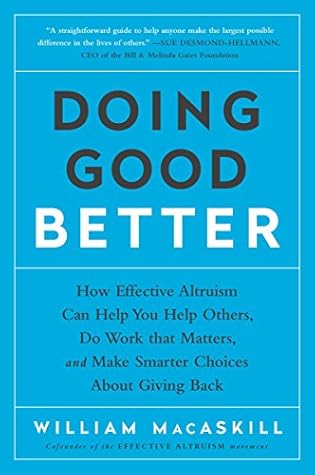More on this book
Community
Kindle Notes & Highlights
Read between
April 29 - August 2, 2020
What about following your heart, your gut, or your itch to find work you love? The evidence suggests that won’t work, either, since we’re bad at predicting what will make us happy.
For example, it’s been found that professors on average end up much less happy after getting tenure than they predicted they would be prior to getting tenure. One possible explanation for this is that they focused too much on the positive features of getting tenure—the sense of achievement and recognition—at the neglect of others, such as an increased number of dull departmental meetings. When deciding which career to pursue, therefore, we are likely to focus our attention on factors that come to mind easily, such as salary and working hours. This might lead us to ignore other factors that are
...more
“personal fit” rather than “following your heart”
empirical approach,
trying out different types of work
the first step is to learn as much about the work as you can. Go and speak to people in the job. Ask what traits they think are most important to success, and see how you measure up. Ask about the main reasons people end up leaving the job. Find out how people who are similar to you have performed in the past.
how much impact you’ll have within the job.
First, to make a difference in the social sector, the organization you work for must be effective.
Second, you need to provide substantial value over the person who the charity would have hired instead.
The third is the influence you can have on other people. In order to work out the total impact you can have, you should look at all three of these; whereas advice that solely focuses on the charity sector only looks at the first.
For your donations, that’s the effectiveness of the organization you donate to. What you’re able to influence depends heavily on your situation: you might be able to influence the expenditure of the charity you work for, you might be able to influence the donations of your coworkers, or you might be able to influence the general public through a public platform. In each case, the more effective the causes you’re able to support, the more impact you’ll have.
it’s much more important to build skills and credentials than it is to have an impact on the job.
If you develop organizational skills, then all other things being equal, you will be more effective in your next job. If you get to know a large number of people through your work, you are more likely to be connected with job opportunities.
It’s easier, for example, to transition from the for-profit sector to the nonprofit sector than vice versa.
Keeping your options open also provides a reason for building transferable skills—such as sales and marketing, leadership, project management, business knowledge, social skills, personal initiative, and work ethic—rather than highly specific skills, like piano tuning or knowledge of the shipping industry.
How much do you learn about what careers you should choose in the future in the course of doing the job? Especially when you’re just starting out, you won’t know much about what opportunities are out there and which will fit you best. Your first few jobs will give you valuable information that will inform your later decisions. This can provide a reason in favor of trying things that are less well-known to you at first.
Exploration value provides a reason in favor of working in the for-profit sector for a year or two: you might discover that the opportunities there suit you well.
(Sometimes this is caused by the idea of having a “calling” that you try to force onto the world, without testing to find out if it’s something that the world actually
It’s better to have a bad plan than no plan, but only if you’re open to changing it.
If you’re aiming to pursue earning to give over the long term, it’s important to work out the long-run earning potential of different careers.
Sales and marketing can also be good options. As well as being fairly high paying for a given level of competitiveness, they provide particularly useful skills if you want to move into the social sector later on in your career.
job might be outsourced (as IT support has been to some extent), or automated as a result of new technology. For
general, jobs that require social skills (like public relations), creativity (like fashion design), or precise perception and manipulation (like boilermaking) are the least likely to become automated.
The second aspect of the framework is tractability, which means the long-run average of people’s ability to turn resources into progress toward solving the problem. Even if a problem is hugely important and highly neglected, that doesn’t mean it’s an important cause to focus on. There might simply be very little we can do about it. For example, aging is a problem that is huge in scale: almost two-thirds of global ill health is a result of aging. It’s a problem that’s highly neglected: there are only a tiny number of research institutes focused on trying to prevent the causes of aging (rather
...more
In previous chapters, I discussed explicit cost-effectiveness estimates (e.g., one QALY costs one hundred dollars). This is useful when thinking in the short term.
This means that, when thinking about investing time and effort into a cause, it’s important not just to look at our current best-guess estimates but to make estimates about the long-run tractability of the cause as well.


